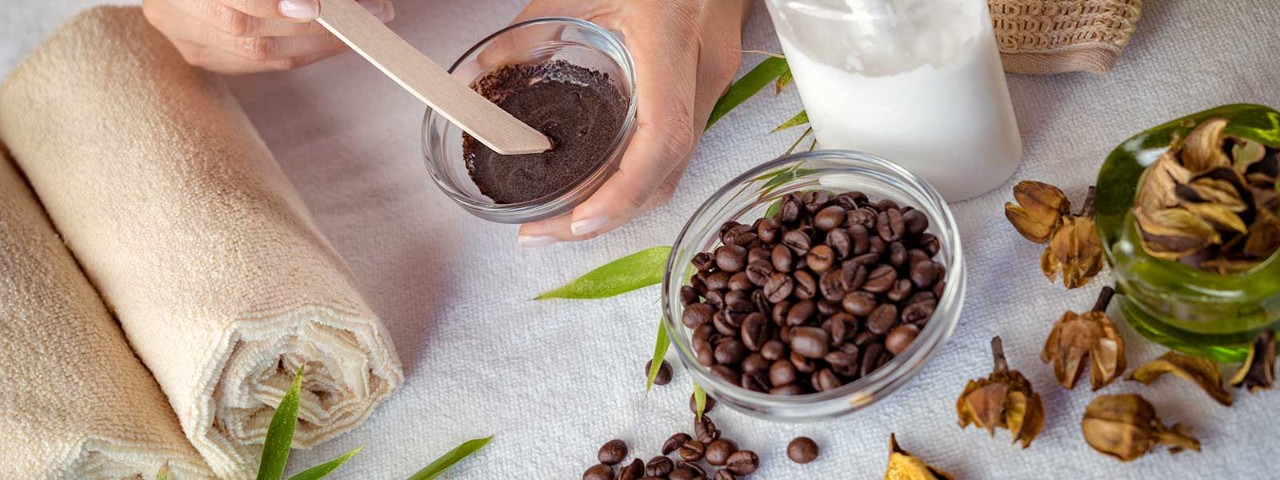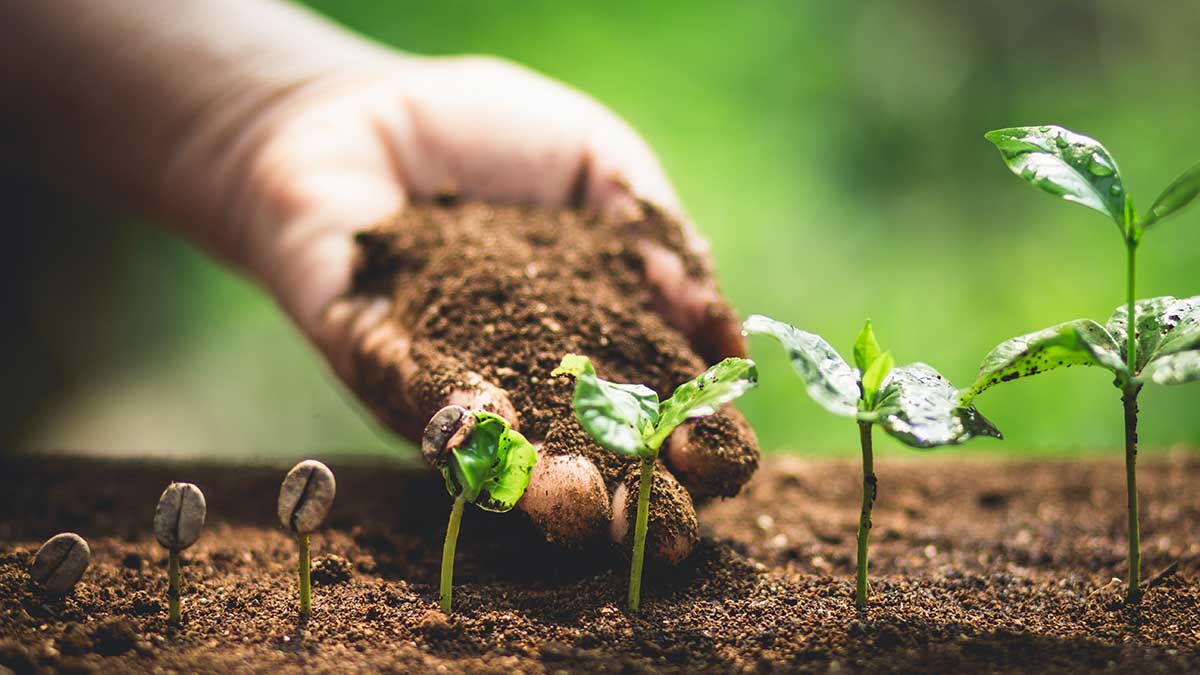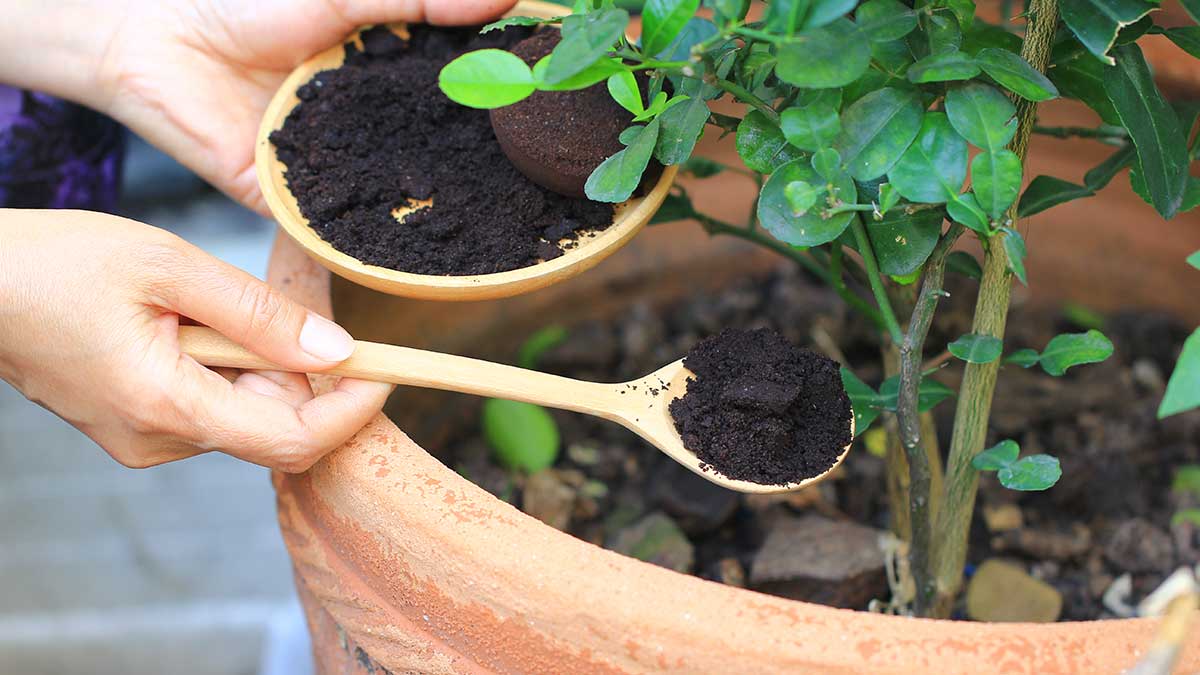Boxing Day is the perfect time to secure your next getaway, with savings on RACV Resort stays.
How to save money using coffee grounds around the home

Think coffee is just for your morning wakeup call? Think again. From fertiliser to face scrub, coffee grounds have many uses besides being a hot drink that save you time and money.
Coffee. So hot right now.
Victoria is cemented as the (self-appointed) hotspot for coffee, with 75 per cent of us enjoying a cup of joe each day at some of Melbourne's best coffee shops - that's 1.3 million takeaway coffees sold every 24 hours. While that's a lot of waste, it doesn't come cheap, either - the average takeaway in Victoria is around $5.00 in Melbourne, and up to $7.00 in places like Sydney.
To offset this waste and in a bid to save money, 45 per cent of Australians have now opted to make a great coffee at home, resulting in more homes needing fresh coffee grounds. What many people aren't aware of is the untapped potential of their used coffee grounds.
Whether it's to tighten the budget, help the environment, use more natural remedies on your body and around the home or you’re simply looking to get creative, here some of the best ways you can reuse your coffee grounds.
Ways to reuse coffee grounds and save money
The following are natural remedies, some of which have been shown to be effective in clinical studies. If you experience any adverse reactions, discontinue and seek medical attention if necessary.
Use coffee grounds on your face and body
While you can spend a fortune on designer and big-name brand scrubs, you can make your own coffee scrub for free at home. Coffee can be used as a chemical-free agent for a number of beauty remedies, including:
Free body exfoliating scrub
Coffee scrubs are used as a natural exfoliator on the face and body, which can help to remove dead skin cells and potentially softer and silkier feeling skin.
To create your own coffee scrub, simply mix in a half cup of used coffee grounds with a quarter cup of water or coconut oil, and another quarter cup of brown sugar.
Mix until it forms a paste, and use gently over the skin before washing off with warm water.
Hair growth
Studies have shown that caffeine can assist with hair growth by removing dead skin cells and product build up in the hair.
While it may seem strange at first, washing your hair with used coffee grounds once or twice a week before shampooing may have the ability to exfoliate your scalp, paving the way for quicker hair growth.
Under-eye remedy
Looking to save money on eye cream? Many people suffer from dark circles under the eyes. While getting a good night’s sleep is always an important factor in maintaining your health, coffee grounds can potentially help neutralise the appearance of darkness or puffiness under the eye.
With natural properties that can stimulate blood circulation and slow down skin ageing, simply mix used coffee grounds with water and rub the mixture under your eyes. Rinse after 10 minutes.
Hair dye
Looking for a chemical-free hair dye that doesn't break the bank? While it may not be drastic or super long-lasting, mixing in some coffee can add some shine, make your hair appear darker, and could cover some greys in between trips to the salon.
To make your natural hair dye, add a half cup of brewed coffee with two tablespoons of coffee grounds into a cup of your home conditioner. Use natural shampoo and rinse. Lather and add your coffee mixture into damp hair, and let set for an hour.
Voila! Natural beauty at home.

Coffee grounds are a great, free additional to your garden compost. Image: Getty
Reuse your coffee grounds in the garden
As well as a delicious drink and beauty product, did you know that you can use coffee grounds in the garden as a free mixer? Avid green thumbs can empty out their coffee grounds to:
Make fertiliser
To give your plants proper nourishment, they need nutrients to grow. Used coffee grounds are rich in vitamins and minerals key for plant growth; including magnesium, calcium, potassium, nitrogen and iron. They also attract worms, who help improve soil nutrient levels.
To use as plant fertiliser, you don’t need to do much – simply sprinkle your used coffee grounds over the soil around your garden. Instant free fertiliser.
Make compost
While fertiliser feeds your plants, compost feeds your soil. Used coffee grounds can be used when making mulch in the compost alongside other compost matter such as dried leaves, twigs, straw or old newspapers.
Grow mushrooms
Looking for a free feed? Whether you’ve gone truffle hunting for fancy funghi or you’re simply looking to create your own mushroom spawns in your backyard veggie garden, adding some freshly used coffee grounds to your soil can assist when mixed with mushroom spawn, at a ratio of around 500 grams of spawn for every 2.5 kilos of coffee grounds.
Repel pests
Did you know that caffeine is considered toxic to insects? This means it works well as a free pest repellent when spread in your garden to deter slugs, snails and fruit flies, and can even get rid of mosquitoes and flies when sprinkled on and around your outdoor furniture.

Used coffee grounds makes for a helpful free fertiliser addition. Image: Getty
Use coffee grounds as a free natural household cleaner
While you might normally find the coffee grounds next to the home coffee machine, did you know they have many other uses around the home? Once you’ve made your daily cuppa, empty the grounds when starting your spring cleaning and use as:
A free natural scourer
Getting the grime off your dishes is not an easy task even for the most professional of home cleaners.
Luckily, coffee grounds can be used as a natural, chemical-free cleaner due to their abrasive nature. Simply rub the grounds onto pots, pans, utensils, or even your sink or oven before wiping with warm water.
Fix scratched furniture
Over time, it’s inevitable that some of your furniture will fall victim to natural wear and tear. If some of your wooden furniture or flooring is looking a little worn, try using coffee grounds to fix the appearance of scuffs and scratches.
Simply make a paste out of the used coffee grounds and water, and rub into the scratch using a cotton bud or ball. Leave for 10 minutes before wiping away with water.
The idea is that the grounds help to ‘buff out’ the scratch and alter the appearance to make the wood appear darker.
Clean your fireplace
By repurposing used coffee grounds over ashes in your wood-burning fireplace, you can help stop smoke clouds forming and dust escaping, which makes it easier to clean in the long run.
Remember to put safety first when maintaining your fireplace.
Eliminate odours
As well as vitamins and minerals that assist in the garden, coffee grounds have properties that act as a natural air freshener, eliminating natural odours and gases.
They can be used in places like the fridge, where a bowl of used coffee grounds can help absorb odour from spoiled produce, or you can even create bags tied securely to put in your drawers, bag or car as a free natural deodoriser or air freshener.

You can reuse coffee grounds to make a delicious cold brew. Image: Getty
Use coffee grounds to tender your meat
Steak with some coffee sauce? While it’s not exactly the standard at the local pub, used coffee grounds are quite useful in tenderising meat for a softer texture, due to its natural enzymes and acids.
As well as enhancing flavour, the used coffee grounds can also be used as a rub or marinade to create a delicious crust full of rich flavour.
Simply add to your chosen dry rub to tenderise; or to marinade, brew the grounds before allowing to cool over the meat for up to 24 hours.
Reuse your used coffee grounds for cold brew
While we wouldn’t recommend using coffee grounds a second time for regular coffee, for cold brew, the flavour is less impacted.
To save time, money and to act more sustainably, you can extract your used coffee grounds by combining with fresh water and leaving in a refrigerated mix for 24 hours.
Once strained, the extraction means the oil and flavour will remain for a rich batch.


